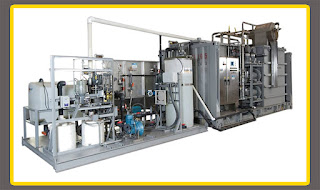Freshwater scarcity is a serious concern in many drought-stricken regions of the world as the population of the world is growing tremendously and climate change is becoming more entrenched. In Many such cases, desalination, or the process of converting saltwater into freshwater, is one of the most crucial weapons in the fight against water insecurity.
So, let's examine the different uses of desalination water treatment in these arid environments:
1. Agricultural Irrigation: Droughts can severely reduce crop output, and agriculture is a significant water user. A vital supply of water for irrigation is provided by desalination, particularly in coastal areas where conventional freshwater supplies are being exhausted. Desalinated water can be utilized to maintain agricultural output and guarantee food security for areas affected by drought if it is treated and managed properly.
2. Municipal Water Supply: Desalination facilities deliver a dependable source of freshwater for everyday demands for coastal cities that are experiencing drought. Entire cities & villages can be supplied with millions of litres of clean water each day by large-scale desalination systems. For the locals, this acts as a lifeline by guaranteeing access to clean water, sanitary conditions, and good hygiene.
3. Emergency Relief: Communities may find themselves in a state of chaos as a result of unexpected and severe droughts. Because desalination water treatment can be deployed quickly, it is perfect for emergency relief scenarios. In catastrophe situations, mobile desalination machines can be rapidly deployed to give displaced communities waiting for long-term solutions a temporary but essential supply of clean water.
4. Industrial Applications: Water is essential to many industries, including manufacturing and energy generation. Even in dry spells, desalination facilities can offer these sectors a reliable supply of freshwater. This promotes industrial activity, which is essential for preserving the stability of the economy in areas impacted by drought.
5. Island Communities: Because they have fewer freshwater resources, island communities frequently deal with particular water related problems. For many towns, desalination provides a cost-effective alternative to costly water imports or rainwater collection. A steady supply of freshwater for drinking, sanitation, and even the growth of the tourism industry may be guaranteed via desalination facilities.
For the towns facing water scarcity, desalination can be a lifesaver as it has the capability to offer a dependable supply of freshwater for a different usages. It is imperative to consider energy consumption, environmental impact, and cost-effectiveness in order to guarantee that desalination continues to have a sustainable role in regions affected by drought in the future.










